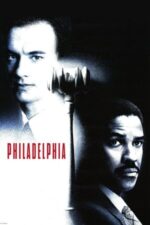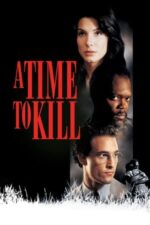Beyond "Objection!": Exploring the Enduring Power of Courtroom Drama
There's something inherently captivating about a courtroom scene, isn’t there? It’s not just about legal jargon and procedural niceties; it’s about high stakes, human drama, and the very foundations of justice being tested. The courtroom drama genre, at its best, holds up a mirror to society, forcing us to confront uncomfortable truths about our systems and ourselves. And while we might think of classics like To Kill a Mockingbird, there's a surprising breadth and evolution within this subgenre that deserves a closer look.
What makes a courtroom drama truly sing isn’t just the legal maneuvering – though those moments can be thrilling! It’s about the characters caught in the crossfire, the moral ambiguities, and the exploration of power dynamics. Take Physical Evidence, for example. The film isn't simply about proving innocence or guilt; it’s a tense thriller that examines corruption within law enforcement and the precariousness of trust – both between colleagues and with one’s own conscience. It reminds us that justice isn’t always black and white, even (or especially) when those sworn to uphold it are involved.
Then you have films like From the Hip, which cleverly dissects the ethics of ambition within the legal profession. Robin Weathers' initial pursuit of career advancement through sensationalism highlights how easily principles can be compromised in the name of success – a sadly relevant commentary even today, considering our obsession with "influencer" culture and performative activism. It’s a cautionary tale about the dangers of prioritizing image over integrity.
Interestingly, courtroom dramas aren’t limited to traditional legal settings. The Verdict, for instance, cleverly uses the framework of a military tribunal – essentially putting the audience in the jury box – to explore complex questions of heroism and culpability. The film's interactive nature is brilliant; it forces you to actively engage with the moral dilemma at hand.
Beyond the procedural elements, some courtroom dramas delve into deeply personal narratives. In Her Place beautifully illustrates how a crime can ripple outwards, impacting lives in unexpected ways, while Let Him Have It uses a real-life case to examine societal attitudes towards capital punishment and the devastating consequences of misplaced loyalty. And then there’s Illegal, which offers a poignant exploration of guilt, redemption, and the profound impact one legal misstep can have on an individual's life – something I find particularly compelling because it speaks to the responsibility we all bear within systems of power.
Ultimately, the enduring appeal of courtroom dramas lies in their ability to tap into our fundamental anxieties about fairness, accountability, and the human condition. They’re not just about winning or losing a case; they're about what happens to us along the way. So next time you’re looking for something gripping and thought-provoking, consider venturing beyond the obvious – there’s a whole world of compelling courtroom stories waiting to be discovered.







































